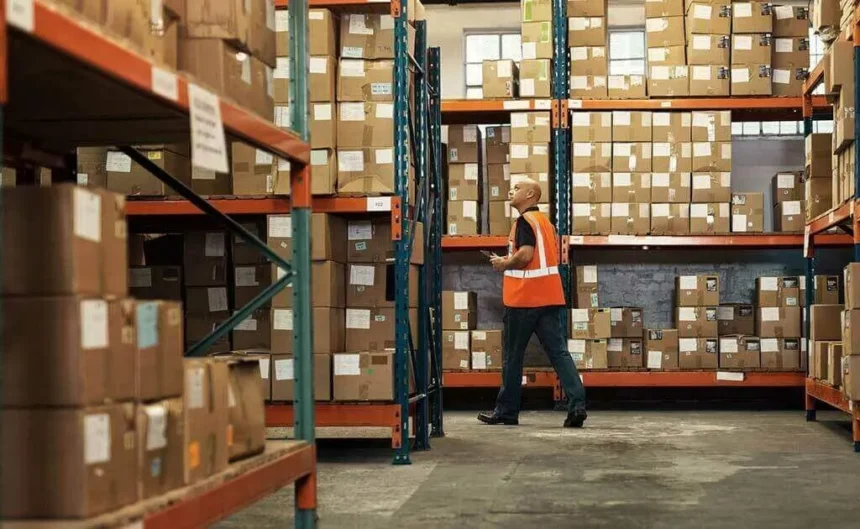In the fast-paced world of commerce, wholesale distributors play a critical role in connecting manufacturers with retailers and, ultimately, consumers. Whether you are a business owner looking to expand your product offerings or an entrepreneur exploring opportunities in the supply chain, understanding wholesale distribution is crucial. This guide will provide you with in-depth insights into what Distributor are, how they operate, and why they are vital to the business ecosystem.
What is a Wholesale Distributor?
A wholesale distributor acts as a middleman between manufacturers and retailers. They purchase goods in bulk from manufacturers at a discounted rate and then sell them to retailers or other businesses at a higher price. Wholesale distributors focus on logistics, inventory management, and customer relationships to ensure products reach their final destination efficiently and cost-effectively.
Key Functions of a Wholesale Distributor:
- Bulk Purchasing: They buy large quantities directly from manufacturers.
- Storage and Warehousing: They store products in warehouses, reducing the need for retailers to maintain significant inventory.
- Product Distribution: They deliver goods to retailers or other businesses.
- Market Insights: They provide manufacturers with valuable market feedback to optimize production.
Types of Wholesale Distributors
- General Wholesale Distributors:
These distributors carry a wide range of products across multiple categories, such as electronics, clothing, or home goods. - Specialized Wholesale Distributors:
These focus on a particular product category, such as medical supplies, automotive parts, or gourmet foods. - Drop-Ship Distributors:
These distributors handle logistics for eCommerce businesses, shipping products directly to the end customer without the retailer holding inventory. - Regional Distributors:
These cater to specific geographical areas, focusing on local markets and cultural preferences.
How Wholesale Distribution Works
The wholesale distribution process involves several critical steps:
- Sourcing Products:
Wholesale distributors establish relationships with manufacturers to procure high-quality goods at competitive prices. - Storage:
Products are stored in strategically located warehouses, ensuring they are accessible when needed. - Order Processing:
Retailers place orders, and distributors prepare the items for delivery, ensuring accuracy and efficiency. - Shipping and Logistics:
Distributors use their transportation networks to deliver products to retailers on time. - Customer Support:
Distributors often provide after-sales services, addressing retailer concerns and ensuring satisfaction.
Advantages of Working with a Wholesale Distributor
For both manufacturers and retailers, Wholesale Distributors offer numerous benefits:
For Manufacturers:
- Increased Reach: Distributors help manufacturers reach a broader audience.
- Focus on Production: Manufacturers can concentrate on creating products rather than managing logistics and sales.
- Market Insights: Distributors provide feedback on market trends, helping manufacturers adapt to demand.
Retailers:
- Cost Savings: Retailers can buy products at wholesale prices, improving their profit margins.
- Convenience: Wholesale distributors handle storage and delivery, reducing overhead costs for retailers.
- Product Variety: Retailers gain access to a wide range of products without having to deal with multiple manufacturers.
Challenges in Wholesale Distribution
While wholesale distribution is a profitable and essential business model, it does come with its challenges:
- Inventory Management:
Maintaining the right inventory levels to meet demand while minimizing holding costs can be tricky. - Market Competition:
The rise of eCommerce platforms and direct-to-consumer (DTC) sales models has increased competition. - Supply Chain Disruptions:
External factors like global pandemics or transportation strikes can disrupt the flow of goods. - Technological Adaptation:
Keeping up with advancements in logistics, inventory software, and customer relationship management is critical but demanding.
How to Choose the Right Wholesale Distributor
Selecting the right Bj Wholesale distributor is vital for the success of your business. Here are factors to consider:
- Reputation and Reliability:
Research reviews, ask for references, and assess the distributor’s reliability. - Product Range:
Ensure the distributor offers a variety of products that align with your business needs. - Pricing:
Compare prices from different distributors to find the most competitive rates. - Location:
Choose distributors with warehouses near your business to reduce shipping costs and delivery times. - Customer Support:
Look for distributors that provide excellent customer service and are responsive to your queries. - Technological Integration:
Distributors with advanced tracking systems and seamless order processing can make your operations more efficient.
Wholesale Distribution in the Digital Era
The digital transformation has significantly impacted the wholesale distribution industry.
Trends Shaping the Future:
- ECommerce Platforms:
Many wholesale distributors are adopting online platforms, allowing retailers to browse catalogs, place orders, and track shipments conveniently. - Automation:
Advanced software solutions are being used to automate inventory management, order processing, and shipping logistics. - Data Analytics:
Distributors leverage data analytics to predict demand, optimize stock levels, and improve customer relationships. - Sustainability Initiatives:
Distributors are focusing on eco-friendly packaging and green supply chain practices to meet environmental standards. - Global Expansion:
With improved logistics and technology, wholesale distributors are expanding their reach to international markets.
Top Wholesale Distributors in Different Industries
Fashion:
- S&S Activewear: Specializes in wholesale apparel and accessories.
- Joor: A digital wholesale platform connecting retailers with fashion brands.
Electronics:
- Ingram Micro: A leading distributor of IT products and services.
- Tech Data: Offers a wide range of technology solutions.
Food and Beverage:
- Sysco: Focuses on food products for restaurants and hospitality businesses.
- US Foods: Provides a variety of food and kitchen essentials.
Health and Beauty:
- HBA Global: Supplies health and beauty products to retailers and spas.
- Beauty Joint: A popular choice for beauty wholesalers.
FAQs about Wholesale Distributors
1. What is the difference between a wholesaler and a distributor?
While both involve bulk product sales, distributors often have a closer relationship with manufacturers and provide additional services like marketing, logistics, and customer support. Wholesalers typically focus solely on purchasing and reselling products.
2. Can small businesses work with wholesale distributors?
Yes, manywholesale distributors cater to small businesses, offering low minimum order quantities and flexible payment terms.
3. How can I start a wholesale distribution business?
Starting a wholesale distribution business involves identifying a niche, securing suppliers, setting up storage facilities, and building a network of retailers.
4. Are wholesale prices always cheaper?
Wholesale prices are generally lower than retail prices due to bulk purchasing discounts, but additional costs like shipping and storage may apply.
Conclusion
Wholesale distributors are the backbone of the supply chain, ensuring products flow seamlessly from manufacturers to retailers. Whether you are a manufacturer, retailer, or aspiring Wholesale Extracts Flavorfrenzy distributor, understanding the intricacies of this industry can help you make informed decisions and succeed in your endeavors.
By staying updated on industry trends, leveraging technology, and fostering strong relationships, businesses can unlock new opportunities and thrive in the dynamic world of wholesale distribution.



